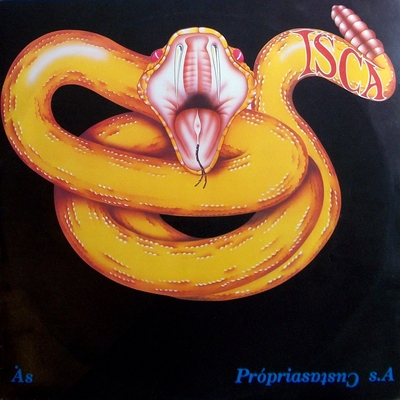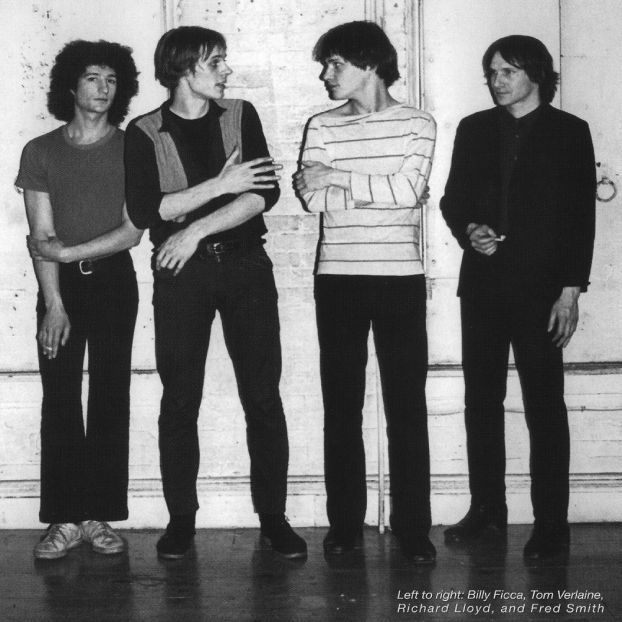Filho de família pobre, Nelson Cavaquinho nasceu no Rio de Janeiro em 29 de outubro de 1911. Viveu a infância solto na rua, jogando em peladas, bolinhas de gude, correndo atrás de balões. Quando tinha 7 anos de idade pegou gripe espanhola, que assolou o Rio de Janeiro. Devido aos problemas financeiros de sua família teve que deixar a escola no terceiro ano primário para trabalhar numa fábrica de tecidos e depois como auxiliar de eletricista.

A música nasceu cedo em Nelson. Seu pai, Brás Antônio da Silva, tocava tuba na Polícia Militar. Nas tardes de domingo, a família se reunia, seu tio Elvino tocando violino e Nelson tentando acompanhá-lo num instrumento feito em casa: uma caixa de charutos com alguns arames esticados. Sua mãe, Maria Paula da Silva, era lavadeira no Convento de Santa Tereza e cuidava de seus cinco irmãos, Iracema, Arnaldo, João, Atarílio e José.
Seu contato com a malandragem carioca começou cedo. Ele ficaria amigo de famosos e famigerados valentes como Brancura, Edgar e Camisa Preta. Na adolescência, morando na Gávea, entraria em contato com os chorões e sua músicas. Ficava fascinado com a perícia dos grandes mestres do cavaquinho e ia espiando e aprendendo os truques do instrumento. Como não tinha dinheiro para comprar um cavaquinho, treinava quando conseguia emprestado de alguém.
Em suas andanças pelos bailes dos clubes cariocas conheceu músicos de grande influência em sua formação, como Edgar Flauta da Gávea, Heitor dos Prazeres, Mazinho do Bandolim e o violonista Juquinha, de quem recebeu importantes noções de como tocar cavaquinho. Nessa época adquiriu um costume que virou sua marca: tocar apenas com dois dedos. E ganhou o apelido que o acompanharia por toda a vida.
Demonstrando grande habilidade para o instrumento, Nelson compôs um choro, “Queda”, que o fez tornar-se respeitado como músico, passando a ser chamado para fazer shows. Fugia de seu trabalho como ajudante de eletricista e ia para a rua da Conceição para ver músicos como Luperce Miranda tocando. Afinal, ganhou um cavaquinho de presente.
Aos 20 anos, conheceu Alice Ferreira Neves. Meses depois foi arrastado pelo pai da moça até a delegacia e obrigado a se casar. Teria quatro filhos. Com as obrigações de um chefe de família e sem emprego, Nelson teve que pedir socorro à família. Seu pai, que era contramestre da banda da corporação, conseguiu para ele um posto como cavalariano na Polícia Militar.
Quem achava que a disciplina do quartel mudaria seus hábitos boêmios se enganou. Todos os dias Nelson pegava seu cavalo, Vovô, e subia o morro da Mangueira para a patrulha. Chegando lá parava de bar em bar, onde fez amizades com sambistas como Carlos Cachaça, Zé da Zilda e Cartola.
Nelson conta como conheceu Cartola: “Foi na quadra da Mangueira. E, no nosso primeiro encontro, teve um caso interessante. Na época, era polícia e estava de ronda pelo morro. Aí, resolvi parar numa tendinha e deixei amarrado na porta o cavalo, e olha, fiquei tanto tempo conversando com o Cartola, que quando saí da birosca, cadê o animal? Tinha sumido. Fiquei apavorado. E resolvi, assim mesmo, voltar para o quartel. Não é que quando chego lá dou de cara com o cavalo na estrebaria? O danado parecia que sorria pra mim pela peça que me pregou.”
Sua patrulha até que era eficiente. Como conhecia todo mundo no morro, quando encontrava alguma encrenca, não prendia: conversava com os envolvidos e resolvia a questão. Nelson mergulhava cada vez mais no samba e na boêmia, passava dias longe de casa, faltava ao trabalho e era punido com detenção. “Eu ia tantas vezes em cana que já estava até me acostumando ao xadrez. Era tranqüilo, ficava lá compondo, entre as músicas que fiz no xadrez está “Entre a Cruz e a Espada”.”
Antes que fosse expulso da corporação, Nelson conseguiu baixa. Na mesma época separou-se da mulher, depois de alguns cavaquinhos e violões quebrados, ficando livre para dedicar-se à música e a boêmia sem cobranças nem recriminações. Sem dinheiro, habituou-se a ir à praça Tiradentes vender seus sambas por verdadeiras ninharias. Um de seus parceiros, Milton Amaral, também compositor e boêmio, costumava contar que, certa madrugada, fizeram um samba juntos. Dias depois, quando foi à editora para assinar o contrato, qual não seria sua surpresa ao constatar que era o 16º co-autor: Nelson já havia vendido a mesma música quatorze vezes.

Na década de 50, trocou o cavaquinho pelo violão. Mas não deixou a maneira de tocar com o polegar e o indicador que sempre impressionou instrumentistas como Paulinho da Viola, Turíbio Santos e Egberto Gismonti. Como compositor, notabilizou-se pela melancolia de sua poesia. E pela constância da morte em sua temática. “Sou um homem que está muito perto da fatalidade. Minhas músicas, por isso, falam sempre em morte e em Deus, não faltando os amores fracassados.” Nelson realmente viveu muitas tristezas. No começo da década de 40, depois de três dias e três noites na rua, tocando cavaquinho, quando voltou para casa, descobriu que sua mãe havia morrido e fora enterrada dias antes.
Com repertório de mais de 600 composições (a maioria delas inéditas ou esquecidas, pois dificilmente o músico as escrevia, preferindo guardá-las na memória), Nelson Cavaquinho criava de madrugada, nas mesas dos bares, com o violão e um copo de cerveja ou cachaça. “Nunca fiz samba por encomenda, por isso jamais vou compor um samba-enredo. Acho horrível você ter de fazer aqueles lá-lá-lá e oba-oba obrigatórios na linha melódica das escolas de samba. Faço músicas para tirar as coisas de dentro do coração. E foi assim desde o dia em que fiz meu primeiro samba.”
Seu principal parceiro, Guilherme de Brito, conta como o conheceu: “Conheci o Nelson Cavaquinho no Café São Jorge. Eu morava em Ramos naquela época e o Nelson já era um sucesso. Às vezes eu voltava de noite, trabalhava o dia inteiro, e lá estava o Nelson com o seu violão. Até que um dia eu me atrevi e cheguei perto dele com a primeira parte de um samba, que foi "Garça", e falei: "Ô Nelson, vê se você gosta aqui...". Ele disse que estava ótimo e fez a segunda parte. Dali em diante seguimos até o fim da vida e fizemos um trato de compormos juntos, só eu e ele. Foi muito boa a parceria e fomos leais até o fim da vida dele. Se bem que ele pulou fora duas vezes durante esse período e compôs com outro cara, mas foi muito bom. Se ele estivesse vivo, estaríamos com certeza até hoje ligados um ao outro.”
Com mais de 50 anos de idade, conheceria Durvalina, sua companheira pelo resto da vida.
Aos poucos o menestrel das ruas foi envelhecendo. Os cabelos tornaram-se brancos, as rugas fizeram residência em seu rosto. Com medo de ter problemas de saúde, parou de beber e de fumar. Já não mais varava as noites em claro, não desaparecia por dias seguidos. Mas continuava com o violão. Todos os dias, abraçava-o carinhosamente, com seu estranho hábito de tocá-lo quase na vertical. As composições foram rareando, no entanto, persistiram até o fim.

Na madrugada do dia 18 de fevereiro de 1986, aos 74 anos, ele morria, vítima de enfisema pulmonar. Ele agora chamava-se saudade
1 - Juizo final (Élcio Soares - Nelson Cavaquinho)
2 - Folhas secas (Guilherme de Brito - Nelson Cavaquinho)
3 - Caminhando (Nourival Bahia - Nelson Cavaquinho)
4 - Minha festa (Guilherme de Brito - Nelson Cavaquinho)
5 - Mulher sem alma (Guilherme de Brito - Nelson Cavaquinho)
6 - Vou partir (Jair Costa - Nelson Cavaquinho)
7 - Rei vadio (Joaquim - Nelson Cavaquinho)
8 - A flor e o espinho (Alcides Caminha - Guilherme de Brito - Nelson Cavaquinho)
Se eu sorrir (Nelson Cavaquinho - Guilherme de Brito)
Quando eu me chamar saudade (Nelson Cavaquinho - Guilherme de Brito)
Pranto de poeta (Nelson Cavaquinho - Guilherme de Brito) participação: Guilherme de Brito
9 - É tão triste cair (Nelson Cavaquinho)
10 - Pode sorrir (Guilherme de Brito - Nelson Cavaquinho)
11 - Rugas (Garcêz - Ary Monteiro - Nelson Silva)
12 - O bem e o mal (Guilherme de Brito - Nelson Cavaquinho)
13 - Visita triste (Anatalicio - Guilherme de Brito - Nelson Cavaquinho)













.jpg)





































